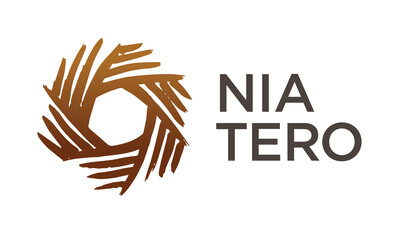NT-2024-AR - Flipbook - Page 21

OUR WORK
Pasifik
Boats on the shore | Solomon Islands, Pasifik
Lauren Guzauskas
Arthur Faerua (Vanuatu) and Dr. Bal Kama (Papua New Guinea)
speaking at the Indigenous Constitutionalism panel hosted by
Islands Knowledge Institute (IKI) | Hawai'i, Pasifik | Nils Cowan
Highlights
Indigenous Constitutionalism was a
key focus of our Pasifik partnerships
throughout 2024. The Islands Knowledge
Institute (IKI), a core Nia Tero partner, and
the Solomon Islands National University
hosted a three-day Tok Stori to discuss the
Indigenous values-based constitutions of
Papua New Guinea (PNG), the Solomon
Islands, and Vanuatu. Tok Stori, a traditional
practice of bringing people together to
dialogue and create understanding, united
leaders from these states alongside elders,
artists and creatives. Attendees reflected
on the reality of their peoples as the original
inhabitants of these lands, affirming their
status as First Nations with sovereignty
enshrined in the constitutions of PNG,
the Solomon Islands, and Vanuatu, which
gained independence between 1975 and
1980. This gathering also provided space
to discuss the critical importance and
possibilities of these countries as exemplars
of nationalities grounded in Indigenous
ontologies predating colonialism and the
U.N. decolonization movement. During the
Festival of Pacific Arts and Culture
(FestPAC), IKI hosted a multi-panel
discussion on Indigenous Constitutionalism,
furthering the dialogue about the
constitutions of these independent islands.
40
Nia Tero supported the launch of the
Kava Strategy in Tonga, including the
participation of key experts from both
Vanuatu and Tonga. The strategy focuses
on protecting and promoting the cultural
significance and economic export of kava,
a plant native to the Pacific Islands, while
assisting in sustainable farming practices
and job creation. Kava, meaning bitter in
Tonga, is served in ceremonies and holds
cultural significance, but has mass-market
appeal as an herbal supplement that has a
calming effect. The Kava Strategy calls for
the use of geographical indications that
protect the authenticity of products tied to
specific regions and people. By protecting
kava’s unique identity and cultivation,
the strategy aims to provide sustainable
economic opportunities for Pasifik
communities, ensuring that kava remains
a vital and culturally significant part of
the region.
Nia Tero
As a sub-national expression of the Sky
Islands pledge in the Solomon Islands,
Malaita strengthened their leadership in
Indigenous restoration and integrated
development through the ongoing
implementation of the Mala I Tolo
Declaration. Led by Mala I Tolo Guardianship
Trust (MiTIGT) and Maimaasina GreenBelt
(MMGB), this commitment reinforced
Indigenous guardianship against logging,
mining, and other threats. Central to this
effort was ‘Remote Monitoring of the Tolo
(REMOTO) – a youth-led initiative driven
by MiTIGT and MMGB and funded by Nia
Tero to enable a more coordinated strategy
to enhance impact. REMOTO integrated
biocultural satellite monitoring technology
with Indigenous knowledge for real-time
forest monitoring, advancing a governance
model rooted in Indigenous ontology.
Annual Report 2024
Through a local collaboration between
Project Sepik and Jubilee Australia
Research Centre, we continued supporting
Save the Sepik in Papua New Guinea. This
initiative supports the Sepik River Peoples
in exercising their right to free, prior and
informed consent in their years-long battle
to defend the health of the Sepik River
against a proposed gold and copper mine
adjacent to an upper tributary of the river,
to which they also hold deep spiritual and
cultural connections.
Grantee Kōrero O Te 'Ōrau, based in
the Cook Islands, continued to excel
in engaging Indigenous youth through
environmental stewardship throughout
2024. Their Operation Taramea initiative
has removed over 12,000 invasive Crown
of Thorns starfish from the reef, a critical
action in protecting marine ecosystems.
The harvested starfish are then used as
fertilizer in traditional gardens, a dual benefit
for the environment and food security.
41